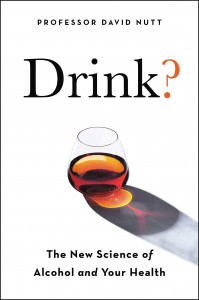Know the Science of Alcohol & Your Health


 For many, having a lovely frosty pint is one of life’s great pleasures. That is, until they drink many more than one frosty pint, feel absolutely horrendous the next day, wracked with beer fear and memory loss, and enter that near-fugue state that makes it very hard to properly use any of your limbs. This also feels like a good place to mention that, according to the World Health Organization, booze is responsible for 3 million deaths a year globally. Up to half of all people in beds in orthopedic wards are there because of an alcohol-related injury and, on weekends, the emergency departments of our hospitals are filled with people who are drunk.
For many, having a lovely frosty pint is one of life’s great pleasures. That is, until they drink many more than one frosty pint, feel absolutely horrendous the next day, wracked with beer fear and memory loss, and enter that near-fugue state that makes it very hard to properly use any of your limbs. This also feels like a good place to mention that, according to the World Health Organization, booze is responsible for 3 million deaths a year globally. Up to half of all people in beds in orthopedic wards are there because of an alcohol-related injury and, on weekends, the emergency departments of our hospitals are filled with people who are drunk.
From after-work happy hour to a nightly glass of wine, we’re used to thinking of alcohol as a normal part of our daily lives. In his new book, Drink?: The New Science of Alcohol and Your Health, neuropharmacology professor David Nutt takes a fascinating, science-based look at drinking to unpack why we should reconsider our favorite pastime. Using cutting-edge scientific research and years of hands-on experience in the field, Nutt delves into the long- and short-term effects of alcohol.
He addresses topics such as hormones, mental health, fertility, and addiction, explaining how alcohol travels through our bodies and brains, what happens at each stage of inebriation, and how it effects us even after it leaves our systems. With accessible, easy-to-understand language, Nutt ensures that readers recognize why alcohol can have such a negative influence on our bodies and our society.
The majority of the book’s chapters cover different aspects of alcohol’s impact on the human body and mind.
 Alcohol’s Impact on Your Body and Mind
Alcohol’s Impact on Your Body and Mind
- The first chapter covers the basics of what happens when we drink alcohol: from the initial reactions to the hangovers the following day. And science here confirms one urban legend – some drinks do really seem to lead to worse hangovers.
- In Chapter 2 the author discusses the health harms. The impact of a bottle of wine every day is roughly equivalent to smoking 20 cigarettes a day. Both lead to a life seven-to-eight years shorter than without them.
Addiction and Its Treatment
- What the addiction is, how it develops, detoxing, and a variety of possible treatments, both medical and psychological.
- Using any drug, including alcohol, over long periods of time alters our brains, and these changes then make it very difficult to stop using the drug.
 Sensible Drinking?
Sensible Drinking?
- Get the maximum benefit out of drinking, with the least amount of harm.
- Think about the type of drinker you are: social, fitting in, looking for excitement, or coping/self-medicating. The next recommendation is to keep a drinking diary for a month.
If you drink, you should do it with full knowledge of the facts. Only then can you make the right choice for yourself, whether that is to go alcohol-free or to drink in moderation. And when you decide to drink, at least you have taken a calculated risk knowing what the harms are.